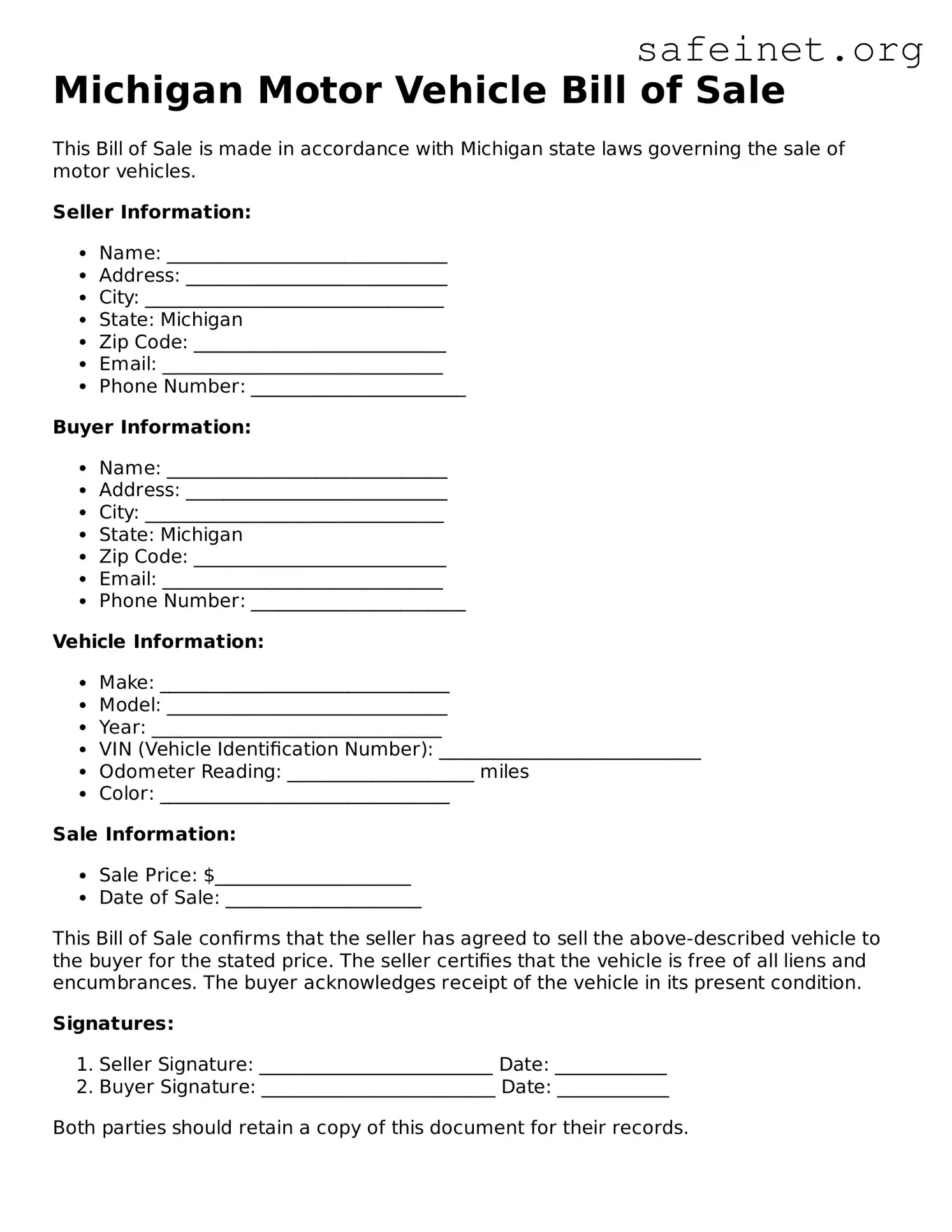What is a Michigan Motor Vehicle Bill of Sale?
A Michigan Motor Vehicle Bill of Sale is a legal document that records the sale and transfer of ownership of a motor vehicle in Michigan. It acts as proof of the transaction between the buyer and seller, detailing the terms of the sale, including the sale price and vehicle information.
Is a Bill of Sale required in Michigan?
While a Bill of Sale is not mandatory for every vehicle transaction in Michigan, it is highly recommended. This document can help protect both the buyer and seller and serve as evidence in case of disputes. It can simplify the title transfer process with the Michigan Secretary of State.
What information should be included in the Bill of Sale?
The Bill of Sale should include essential details such as the names and addresses of both the buyer and seller, the vehicle's make, model, year, Vehicle Identification Number (VIN), and the sale price. It may also contain the date of sale and any warranties or representations made by the seller.
Do I need to have the Bill of Sale notarized in Michigan?
No, notarization is not a requirement for a Bill of Sale in Michigan. However, having the document notarized can add an extra layer of security and legitimacy to the transaction, providing additional proof that both parties agreed to the terms.
Can I use a generic Bill of Sale for a vehicle transaction in Michigan?
Yes, a generic Bill of Sale form can be used for vehicle transactions. However, ensure it captures all the necessary details specific to Michigan laws. Using a form tailored for Michigan can help avoid potential issues during the title transfer process.
How do I complete the Bill of Sale?
To complete the Bill of Sale, fill out all required sections accurately. Make sure both parties review the agreement, sign it, and date it. Each party should retain a copy for their records. If done correctly, this document will facilitate the title transfer to the new owner.
What should I do with the Bill of Sale after the transaction?
After the transaction is complete, both the buyer and seller should keep their copies of the Bill of Sale. The seller may also need it when submitting the title transfer paperwork to the Michigan Secretary of State. It serves as important evidence of the transaction.
How does a Bill of Sale affect the vehicle title transfer process?
A Bill of Sale is often required when transferring the vehicle title. It provides the necessary information to the Secretary of State and acts as proof that the buyer has purchased the vehicle. In Michigan, presenting this document along with the title application can simplify the registration process.
What if I lose the Bill of Sale?
If you lose the Bill of Sale, it may be challenging to prove the transaction took place, especially if there's a dispute later. If necessary, you can create a new Bill of Sale, but both parties will need to sign it again. Ideally, always keep a secure copy of all important documents related to vehicle sales.
